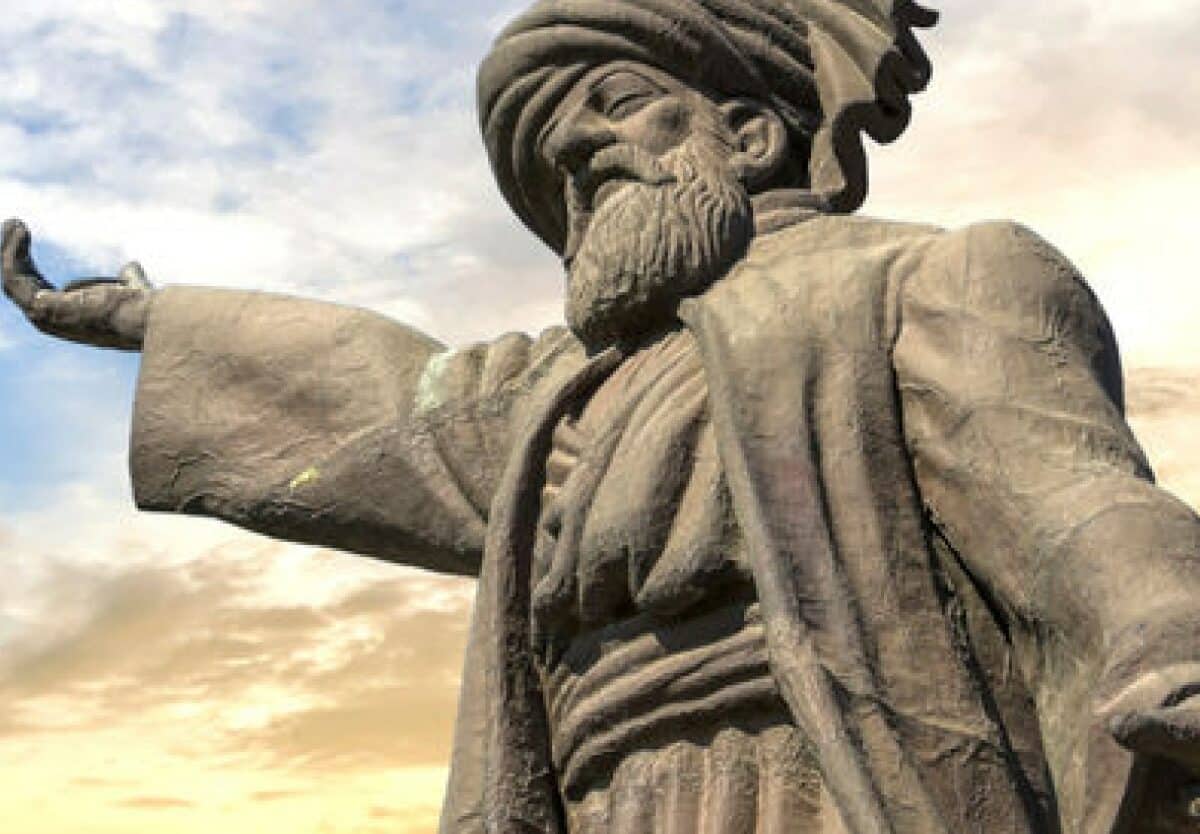Rumi Day is on the 30th of September every year. Poetry has played a significant role in the lives of people from all walks of life for thousands of years. It is hardly surprising that many civilizations and communities designate days for their most cherished poets and authors, given that poetry and writing are frequently highly regarded arts. These poets are so well-known that their birthdays have become national and even international holidays. One of these celebrations is Rumi Day, which is very popular and commemorates the life and writings of the poet Jalal ad-Din Muhammad Rumi, or Rumi.
History of Rumi Day
Rumi was born on September 30, 1207, to native Persian-speaking parents on the eastern coasts of the then Persian Empire, in the city of Balkh, which is now part of Afghanistan, and eventually settled in the town of Konya, which is now part of Turkey. Rumi’s life is filled with intrigue and high drama as well as intense creative outbursts. He was a nobleman, a theologian, a lawyer, and a brilliant but sober scholar. On November 30, 1244, he met Shams, a wandering and holy man, on the streets of Konya.
For months, the two mystics lived in close quarters, and Rumi ignored his pupils and family, forcing Shams to flee the area in February 1246. Rumi was devastated, and his oldest son, Sultan Walad, ultimately returned Shams from Syria. The family, however, could not support Rumi’s intimate relationship with Shams, and Shams vanished one night in 1247. Shams was killed in the 20th century, and Rumi’s sons knew about it. They quickly buried him next to a spring that still exists in Konya.
Rumi plunged into a severe state of despair when Shams died, and from that agony spilled approximately 70,000 lines of poetry, almost entirely in Persian, which are gathered in two epic volumes. Two epic volumes include thousands of poems, including over 2,000 in quatrain form. The first collection, “Divan-e Shams-e Tabrizi,” is dedicated to his tutor, Shams. This collection took him 15 years to finish. Even though Rumi died in 1273, his influence has been huge ever since.
Rumi Day timeline
Rumi is born on September 30 to native Persian-speaking parents o in the city of Balkh.
On November 30, Rumi meets Shams, a wandering and holy man, on the streets of Konya.
Shams goes missing in the night.
Rumi dies in 1273, but his influence continues to grow.
Rumi Day FAQs
What is Rumi’s most famous poem?
His Masnavi (Mathnawi), written in Konya, is regarded as one of the greatest Persian poems.
Why is Rumi so famous?
Rumi was a notable Sufi mystic and poet in Persian, well known for his songs and his didactic epic “Masnav-yi Manav,” “Spiritual Couplets,” which inspired mystical philosophy and literature across the Muslim world.
What is Rumi’s philosophy?
Rumi was a firm believer in the use of music, poetry, and dance as a means of approaching God.
Rumi Day Activities
Read Rumi’s poetry
One of the greatest ways to commemorate Rumi Day is to read some of his timeless poetry. Books with his poems are in a variety of bookstores.
Host a reading of Rumi’s poems
Another excellent way to commemorate Rumi Day is to hold a poetry reading of his works. You will be able to gather several of your friends to appreciate and enjoy the work of this enduring poet together.
Post on social media
You can also celebrate this day by posting on social media with the hashtag #RumiDay. Go ahead, post on this day, and let everyone knows about the great works of this poet!
5 Interesting Facts About Rumi
Rumi is a well-known poet
Rumi is among the best-selling Sufi poets in the Muslim community in the United States.
A poem based on holy texts
The “Mathnav” is devotional writing that spans six books and is approximately 50,000 lines long.
His poems are erotic and devotional
Rumi’s poetry is divided into common themes: mystical, passion, and life and death.
Madonna and Philip Glass are his admirers
Madonna recorded readings of Rumi’s poetry, and Glass’s “Monsters of Grace” is based on Rumi’s art.
Rumi had different names
Rumi’s full name was Jalaluddin Muhammad Balkhi at the time, and in Iran and Turkey, he is ‘Mawlana.’
Why We Love Rumi Day
He spoke to all
Rumi used ordinary objects in his poems to convey his message, and his poems spoke to everyone. In some ways, he speaks to a wide range of people about a wide range of topics.
He conveyed his message through poetry
Rumi's brilliance lay in his ability to articulate deep ideas in simple artistic rhymes. To fully appreciate the pattern of the poetry, listen to it in Farsi.
His message was for everyone
Rumi was more than just a devout Muslim. He was a prominent Islamic scholar, jurist, and theologian in his day. Despite his firm faith, the meaning in his poetry was so ubiquitous that people of different religions could connect to it.
Rumi Day dates
| Year | Date | Day |
|---|---|---|
| 2025 | September 30 | Tuesday |
| 2026 | September 30 | Wednesday |
| 2027 | September 30 | Thursday |
| 2028 | September 30 | Saturday |
| 2029 | September 30 | Sunday |

















